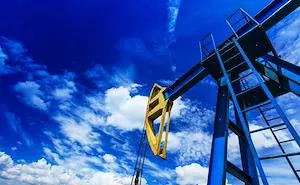Argentina launches a new way of trading natural gas: the Electronic Gas Market

The trading of natural gas in Argentina has undergone relatively few changes since the privatization of the upstream, transportation and distribution sectors, which took place in the last two decades of the last century. During the past 13 years, most natural gas was sold under long and medium-term contracts executed between producers and distributors or large customers,in many cases with the intermediation of marketers.
The Electronic Gas Market (the “MEG”; Mercado Electrónico del Gas), inspired by the encouraging results of U.K. Spot and on-system gas markets regarding the improvement in the quantity and quality of the services available to market participants and price declination, provides an alternative to the traditional form of trading natural gas in Argentina.
Since the beginning of 2004 several amendments were introduced to the Argentine natural gas regulatory framework, procuring to mitigate the devastating effects on the gas industry of devaluation and the emergency measures adopted by the Government in 2002 that resulted in a supply crisis mainly affecting the country’s gas exports and local industrial consumers. While some of these new regulations are intended to improve transportation infrastructure and secure supply to certain protected customers, other measures, like the creation of the MEG, procure to bring transparency, efficiency and competitiveness to the gas markets.
Although Decree No 180 was issued in February 2004, the MEG (the first Spot gas market in South America) began operating in May 2005 thanks to the efforts of the regulators, various players of the industry, and the Buenos Aires Stock Exchange, that is in charge of its establishment, implementation, operability and management.
For the fulfillment of its purposes the MEG is empowered to require and to make available in real-time information concerning the dispatch of the transportation and distribution systems. Also, the MEG makes available commercial information contained in the gas-purchase and transportation contracts, including prices and statistical data.
The following operations are exclusively transacted in real-time through the MEG: (i) the spot or day-ahead natural gas purchase and sale transactions with delivery points either at the injection point to the transportation network or at ‘City Gate’(1); and (ii) the natural gas transportation and distribution services’ secondary market. Until the beginning of the operation of the MEG, the gas transportation secondary market was administered by the federal regulator for gas matters (the “ENARGAS”).
Also, during its first five years in operation, the MEG will also be the exclusive forum for the trading of derivatives (swaps, options, forwards and other related financial instruments) on natural gas and gas transportation and distribution services, and for the trading of other energy products and services. The U.K. experience in this field shows that seven months after the first natural gas derivatives contract was developed by the International Petroleum Exchange in London, the volumes traded under those contracts had reached almost 40% of the U.K. daily production of natural gas.
In the case of the Spot market, the gas for the same operative day or for the immediate following day is traded in auctions, where interested offerors and buyers post their purchase and sale bids on an electronic network, specifying volumes and minimum and maximum sale and purchase prices, as the case may be. The price of the last offer which is fully or partially supplied determines the system’s marginal price applicable to all transactions of the round. In this way, the MEG acts as a clearing and compensating agent for the transactions, instrumented on the basis of standardized contracts.
Trading through the MEG is bilateral, and operations can be carried out directly by the producers and users or distributors, or on a brokerage basis, with traders often acting as intermediaries.
Only licensed agents may operate through the MEG. Two types of licenses are available: self-portfolio and free licenses. MEG agents holding a self-portfolio license may operate only for their own account, unlike the holders of free licenses, who may carry out the transaction either for their own account or for the account of third parties. During the first year of operations the number of MEG free licenses will be capped to 20. No more than one license is permitted per agent, and licenses can be transferred with the MEG’s prior approval.
While self-portfolio licenses are available to any person meeting certain legal and financial requirements –other than gas transporters and its affiliated companies-, in order to increase transparency and avoid distortion and abusive practices, certain players of the gas industry cannot hold free licenses -producers, transporters, distributors, sub-distributors, direct customers or companies directly or indirectly controlling, controlled by, or subject to common control with any of said players. However, this restriction can be avoided if the party undertakes not to carry out any transaction acting for the account of any affiliated player.
MEG’s start-up is taking place in stages. In May 2005, the natural gas transportation secondary market became operative and, since then, all gas distribution services’ exchange, resale or assignment operations and all gas transportation services’ resale or assignment transactions, that up to then were carried out with the intervention of the ENARGAS, are carried out through the MEG. August was the turn of the gas Spot market for transactions with delivery at the injection point to the transportation system. The next step will be the performance through the MEG of the gas Spot transactions with delivery point at City Gate -gas plus transportation-. Finally, the gas derivatives’ market, the MEG’s most important challenge, has been left for a later stage.
(1) Equivalent to the National Balancing Point of the British on-system market.
This insight is a brief comment on legal news in Argentina; it does not purport to be an exhaustive analysis or to provide legal advice.